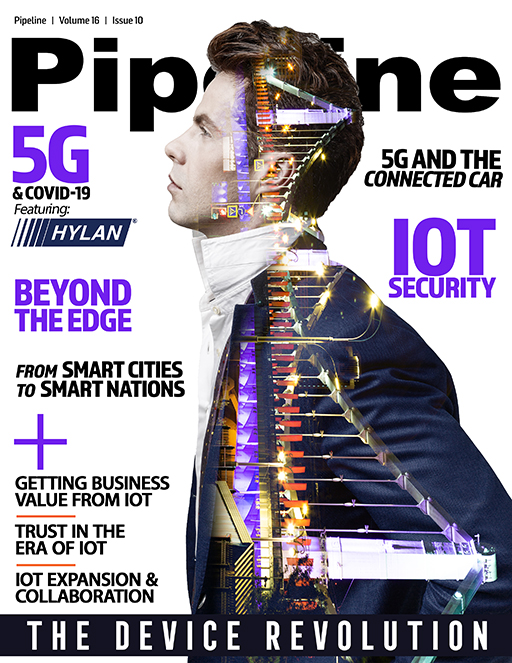Article Index for the July Issue:
July 2020 - Device Revolution
July 2020 - Device Revolution
5G and Next-Generation Networks in a Time of Crisis
By: Robert Bianco
» read this article
Solving Connectivity Challenges for Connected Cars
By: Ankur Bhan
» read this article
IoT Security: Is the Real Test for Telcos Still to Come?
By: Stephen Buck
» read this article
The Challenge of Connecting Beyond the Edge
No matter what industry a business operates in, communications are crucial and make it possible for organizations to carry out their daily activities. When it comes to the communications infrastructure in place, the core networks of fiber, cable, and mobile can all provide reliable support for a business to depend on, in line with its requirements. However, when companies need to extend mission-critical applications beyond that core, they can face significant challenges. Networks must provide high-quality, reliable connectivity with seamless operability around the clock, even as the data crosses the different transmission formats of fiber, satellite, 4G/LTE, and microwave…» read this article
From Smart Cities To Smart Nations
By: Mark Cummings, Ph.D., William Yeack, CSE
» read this article
4 Ways IoT Sparks New Business Value
By: Wolfgang Thieme
» read this article
The Benefits of Trust in the IoT Era
With more than 21 billion Internet of Things (IoT) devices expected to be deployed by 2025, according to antivirus and anti-malware security specialist Norton, and with very little or no security hardware running on these devices, more must be done to create a safe and secure digital ecosystem. Where resources, budgets, and environments vary across devices, a number of security applications must be considered to ensure the whole ecosystem has access to a strong defense against the growing sophistication of attacks and threats…» read this article
Rapid, Trusted IoT Expansion Requires Collaboration
By: Kevin Gillick
» read this article
Letter from the Editor - Prope est Finis
The end is near, for a great many things. Humans, have proved to be a nuisance. They are too costly, prone to error, unreliable, and most importantly weak. And, if robots can put together your Tesla, they can certainly build your burger.As the COVID-19 pandemic ravages cities, industries, and entire economies–and it's not done yet–only the digital will survive. And only the digital natives shall thrive. This is the end my friends, of a great many things. And it's also just the beginning…» read this article
Telecom Industry News
Early this month we officially passed the midpoint of this unprecedented year. Industry news continued to come in at a brisk pace in the first part of the summer, bringing news of partnerships that push digital transformation, supply chain transformation and the future of the connected car. 5G deployments across the world are progressing despite the ongoing pandemic, according to new industry research released this month. And solutions, developments, trials and more continue to advance the Internet of Things, the focus for this month’s issue of Pipeline…» read this article

















